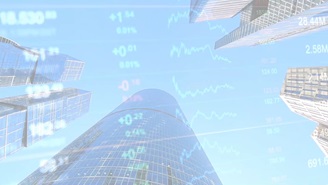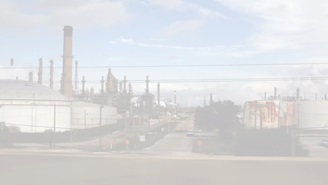Combining ESG Risk and Economic Moat
In this report, we look at the potential synergies between Sustainalytics’ ESG Risk Ratings and Morningstar’s Economic Moat Rating. As a part of our research, we constructed a back-testable investment strategy and portfolio by segmenting stocks with low ESG risk and a wide moat. While both metrics worked independently, they performed exceptionally well in combination.
Integrating Climate Risk into Corporate Governance
Since the introduction of the Taskforce on Climate-related Financial Disclosures (TCFD), there has been increased scrutiny of corporate climate governance and broader associated risks. Investors have increased their focus on climate risk, as governance mechanisms are likely to be impacted by transition and physical risk challenges[i].
How Climate Gentrification is Increasing Real Estate Costs and Socio-economic Disparities
Climate gentrification is an emerging concept describing how land with greater resiliency against intensifying physical impacts of climate change becomes more desirable and valuable.[1] It catalyzes fast and visible socio-economic transformation in communities.
Prioritizing Patient Care and Staff Safety in a Pandemic
Medical facilities, including hospitals and long-term care facilities, are under tremendous pressure to provide quality healthcare for patients while ensuring patient and staff safety amidst the COVID-19 pandemic. By using Sustainalytics’ ESG Risk Rating to understand better the risks faced by companies, and the current state of preparedness within the medical facility subindustry, investors can identify the most relevant points to address when engaging with companies and analyzing potential ESG impacts in their portfolios.
Sustainable Finance Disclosure Regulation: An Industry Game-changer
In recent months, the Sustainable Finance Disclosure Regulation (SFDR) has been sparking almost as much debate as the EU Taxonomy – both cornerstone regulations of the EU Sustainable Finance Action Plan. With the SFDR set to redefine ESG disclosures and make a significant impact on financial market participants in Europe, the short timeline and ambiguity on several vital details are creating confusion and concern in the industry. The risk of organizations not being able to comply in time is still present, despite the announced delay in timelines for the technical standards, as is the risk of high financial and operational costs for the industry.
A Pipeline for Strategic ESG Risk Mitigation
Given the ESG impacts often associated pipeline projects, it is reasonable to say that pipelines have been a source of controversy in North America and around the world. In 2020 alone, several major pipeline projects face high levels of public and community-based opposition; with consequences including widespread protests (as was the case for TC Energy’s Coastal GasLink project at the beginning of this year) and large-scale regulatory and legal challenges (as seen currently with the Dakota Access Pipeline).
If the proxy vote is your voice, what are you saying?
To date, 2020 has marked record inflows to sustainable investments[1]. Elevated globally by a health, social and financial crisis; investors and stakeholders alike are coming to understand the inherent risk of ignoring key environmental, social and governance factors. Current events coupled with new regulations and stakeholder pressure are creating the need for investors to demonstrate their commitment as responsible owners who view corporate accountability as a means to achieving greater long-term value.
The Real Price of Food
Today, October 16, is World Food Day, a campaign created in 1981 to raise awareness of hunger and poverty. With an estimated nine percent of the global population reported as undernourished in 2019, hunger and poverty remain a reality for millions of people with the situation being exacerbated by the COVID-19 pandemic.[1],[2]
Untangling the Complex Threads of Modern Slavery
October 7 is World Cotton Day–an annual event created in 2019 after four cotton-producing countries (Benin, Burkina Faso, Chad and Mali) applied to the UN for special recognition of the crop. Cotton has much to celebrate–it is the primary source of livelihoods and revenue for up to a billion people. That said, the positive benefits do not extend to everyone in the value chain, as significant human rights challenges have persisted in many countries. Change, however, may be upon us. Cotton could be set to face major dislocations driven by responses to human rights violations, with significant implications for investors.
ESG at a Reasonable Price in China
Over the last decade, portfolio managers worldwide have been increasingly convinced that incorporating environmental, social, and governance (ESG) criteria into investment decisions could provide better risk-adjusted returns. As a result, responsible investing, has moved from a niche activity to the mainstream. As more capital shifts to ESG products, there have been discussions regarding the risk of an ESG bubble as stocks with good ESG scores have enjoyed price appreciation and sometimes go beyond fundamentals[i].
The Future of Human Capital: Rising on the Agenda
This has been a year of unprecedented uncertainty and upheaval. It has also cemented the materiality of human capital and the importance of examining preparedness for future workplace challenges. Human capital management is a broad ESG issue that captures important and current matters, such as skills development, diversity and inclusion, and employee engagement. It is growing in its importance due to the dynamic and uncertain management landscape. Notwithstanding the shock of the pandemic and the strengthening drive for racial equality, technology, demographics, and globalization are already driving structural change in labour markets.
Building Back Better for the Next Normal
‘Build back better’ has become the new mantra for post-COVID-19 hopes and ambitions. As people, companies and governments are coming to terms with the crisis and starting to consider the post-pandemic world, many are realizing that going back to how things were is neither possible nor desirable. Just like disruptive technologies throughout modern history have swept away what humanity thought was the best or only solution and replaced it with something superior, the disruption brought on by COVID-19 has also opened the door for making and accepting some long-overdue changes. To truly leverage the opportunity to correct the destructive course on many fronts, responses to the pandemic must involve going beyond adapting to the new normal and focus on shaping what we want the next normal to be. Investors can play an important role in this transition by aligning their strategy and active ownership with progressive long-term objectives.
Regulatory Standards and COVID-19: Is Oil and Gas Being Given a Hall Pass on ESG?
Globally, oil and gas companies are weathering a storm like no other in their history. Although volatility seems to have settled somewhat since the early months of 2020 (when the Russia-Saudi Arabia oil price war experienced its most heated moments yet), cost-cutting and debt borrowing continues to plague the industry as the vast majority of COVID-19 related restrictions remain in place worldwide.
How China’s Electric Vehicle (EV) Policies have shaped the EV market
As CO2 emissions are inherent to Internal Combustion Engine Vehicles (ICEVs), Electric Vehicles (EVs) are widely considered to be the logical alternative towards realizing zero emissions. With the continuation of ongoing technological refinement and years’ of heavy investment, EV manufacturers have significantly upgraded the performance of their products and improved economies of scale making EV production more economically feasible allowing for EVs to become a more widely considered consumer choice. Improving economies of scale, in both the EV manufacturing and the recycling of decommissioned batteries along with the grid’s transition towards renewable energy will make the positive impacts of EVs increasingly undeniable.
Tomorrow’s Board: Challenges in a Fast-Changing World
The world is changing faster than it ever has. As a result, companies are increasingly facing numerous and complex challenges with both immediate and long-term impacts. Today, companies are facing a health crisis, a social justice crisis and a fallout economic crisis. The ongoing COVID-19 pandemic and the social justice crisis, calling for the end of systemic racism, have reinforced the need for more diverse boards.
Antitrust in the Digital Age
On July 27th, the chief executives of four (Alphabet, Amazon, Apple and Facebook) of the world’s most prominent technology companies will appear before the US Congress as part of an ongoing antitrust investigation into their market power.[i] This is the latest in a series of developments that includes federal and state-level investigations in the US into the market practices of these companies. Back in 2018, as part of Sustainalytics publication, ESG Risks on the Horizon, our team had noted that the antitrust related scrutiny of major technology companies is likely to persist given the market concentration these companies had established within the digital economy. While there is significant uncertainty as to the ultimate regulatory response, given the outsized position of these four companies in the S&P 500 and sustainability indices, this type of regulatory and market scrutiny is an area that is important for investors to examine in terms of long-term risks to the enterprise value of these companies.
The Race to Net Zero: Decarbonization Commitments in the Oil & Gas Industry
Recent reports concerning record decreases in global greenhouse gas (GHG) emissions due to the COVID-19 pandemic have spurred hope for a “green shift” in our global economy, post-pandemic. The importance of this shift cannot be understated, given that capital investments made within the next five-to-ten years will determine the world’s carbon pathway to 2050 and beyond.
Airlines Post-COVID-19: The Challenges to a Climate-Friendly Recovery
Planes grounded, borders closed and passengers staying at home: the past months haven’t been easy for the airline industry. COVID-19 has led to the deepest crisis ever in the history of the sector.[i] Airlines are in dire need of cash to recover, while at the same time the industry is also expected to adapt and prepare itself for the more critical crisis ahead that is climate change. Despite the slowdown of air travel, long term prospects of mitigating carbon footprint of the industry are not clear. Carbon commitments supported by comprehensive programs are in place, nonetheless, our research suggests that existing measures may not be sufficient to curve down emissions and mitigate climate change.



















